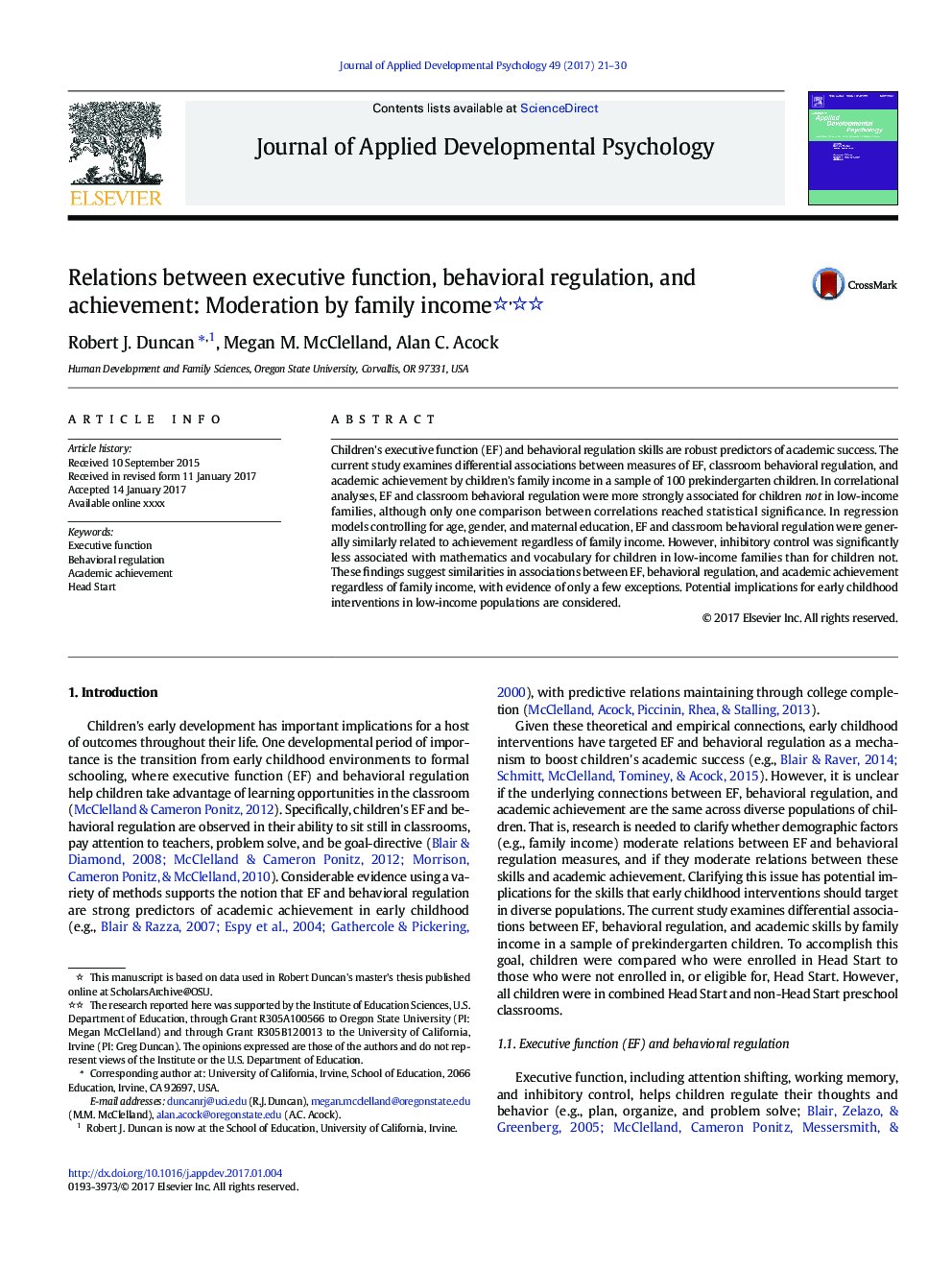| Article ID | Journal | Published Year | Pages | File Type |
|---|---|---|---|---|
| 4939159 | Journal of Applied Developmental Psychology | 2017 | 10 Pages |
Abstract
Children's executive function (EF) and behavioral regulation skills are robust predictors of academic success. The current study examines differential associations between measures of EF, classroom behavioral regulation, and academic achievement by children's family income in a sample of 100 prekindergarten children. In correlational analyses, EF and classroom behavioral regulation were more strongly associated for children not in low-income families, although only one comparison between correlations reached statistical significance. In regression models controlling for age, gender, and maternal education, EF and classroom behavioral regulation were generally similarly related to achievement regardless of family income. However, inhibitory control was significantly less associated with mathematics and vocabulary for children in low-income families than for children not. These findings suggest similarities in associations between EF, behavioral regulation, and academic achievement regardless of family income, with evidence of only a few exceptions. Potential implications for early childhood interventions in low-income populations are considered.
Related Topics
Social Sciences and Humanities
Psychology
Applied Psychology
Authors
Robert J. Duncan, Megan M. McClelland, Alan C. Acock,
